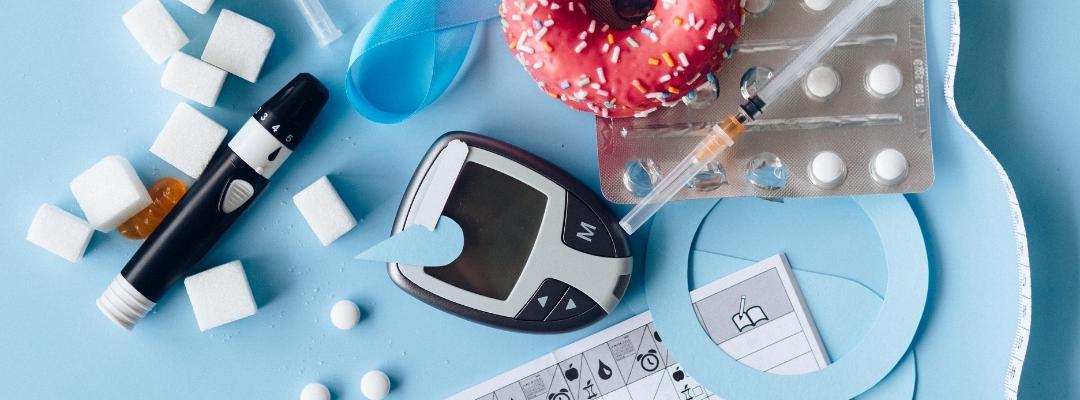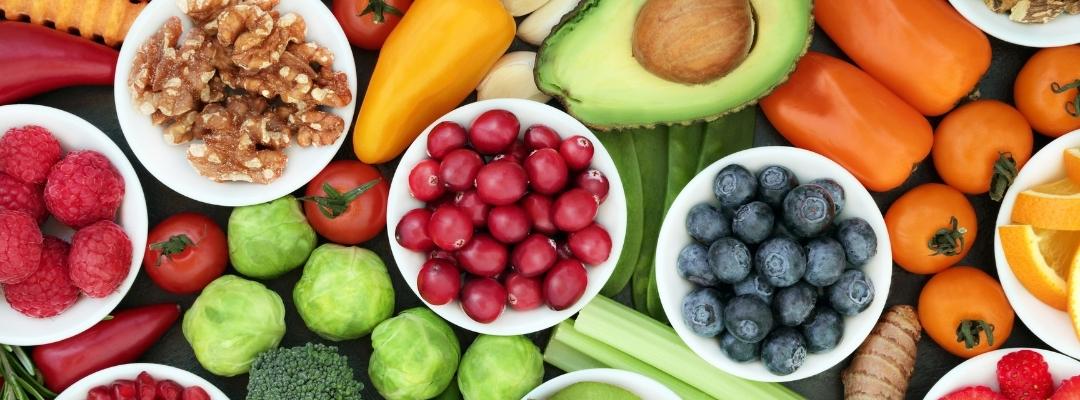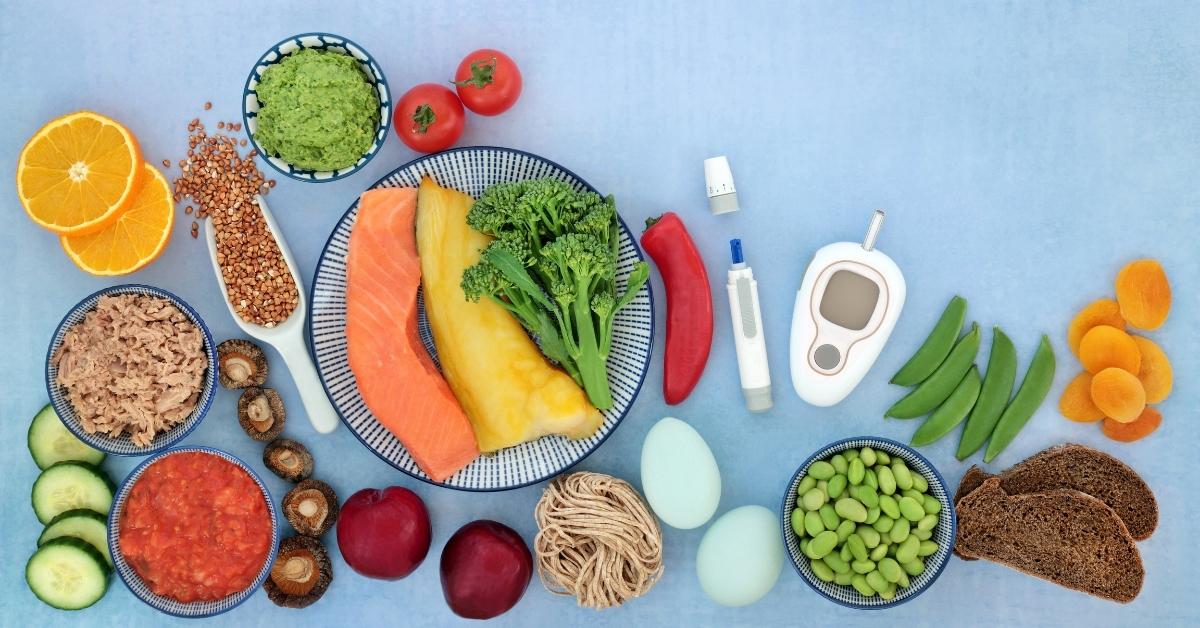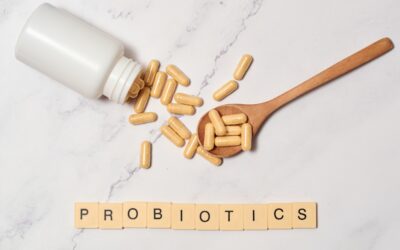Learning to control blood sugar (while enjoying the sweet side of life) is essential to achieving almost any health goal.
For people with pre-diabetes, diabetes or another disease that can affect blood sugar, diet is an important factor in maintaining healthy blood sugar levels.
While factors such as body weight, activity, stress and genetics also play a role in maintaining blood sugar levels, following a healthy diet is critical to controlling blood sugar.
While some foods, including products high in added sugar and refined carbohydrates, can contribute to blood sugar fluctuations, others can optimize blood sugar control while promoting overall health.

Sugar: Our Essential Energy
In its simplest form, sugar is energy. It provides the body with both an immediate and stored source of energy for all of the body’s organs, especially the brain. In fact, the brain is the “hungriest” of the organs, requiring up to half of the body’s daily glucose.
Do you find yourself reaching for a sugary sweet like chocolate or cookies when you’re feeling blue? There’s science to your craving. Sugar (and carbohydrates in general) naturally increase serotonin, the “feel good” hormone. When we’re sad, angry or tired, a sugary snack helps boost our mood, at least for a moment.
The problem with too much sugar
Sugary treats, sodas and processed foods contain more sugar than we would normally eat with fruits and vegetables alone. As such, we easily overdo our sugar intake, often without knowing it. To make matters worse, sugar is addictive. That feel-good effect we experience after eating a treat is fleeting, and we soon crave more and more stimulants.
Unfortunately, this excessive sugar consumption is associated with some serious chronic diseases and, in general, with poor health. Problems such as type 2 diabetes, high blood pressure, heart disease, obesity, stroke and other diseases are closely related to sugar consumption.
Let’s explore some of the more specific effects excess sugar has on the body:
Gut health and sugar.
When it comes to excessive sugar consumption, our stomachs take a beating. Aside from stomach aches and weight gain due to too many indulgences, refined sugar has an inflammatory effect on the entire digestive system and negatively impacts the microbiome. These problems can prevent proper absorption of nutrients and lead to digestive disorders.
SIBO (small intestinal bacterial overgrowth)
SIBO is a painful abdominal condition that occurs when intestinal bacteria living within the large intestine enter the small intestine and overgrow. Here we have dysbiosis: an imbalance in the body’s bacterial balance. While these bacteria are helpful in the large intestine, they cause indigestion, fermentation, toxicity and inflammation in the small intestine. Like leaky gut, SIBO is most often caused by a diet high in added sugars, refined carbohydrates and low in fiber.
Leaky Gut Syndrome
One of the main digestive problems associated with high sugar intake is leaky gut syndrome. The digestive tract is lined by an intricate network of microbiota and a lining that forms a tight barrier between the inside of the intestinal wall and the outside.
Nervous System and Sugar
The nervous system runs on sugar. But, excess added sugars do more harm than good. In general, sugar prevents the nervous system from self-regulating and maintaining a healthy balance between the sympathetic nervous system and the parasympathetic nervous system. As a result, we experience stress, anxiety, loss of concentration, mental fog, fatigue and more.
Adrenal fatigue
Adrenal fatigue is an all too common result of our modern, busy, stressful lives. The condition causes fatigue, lack of sleep, stress, mood imbalances and can make you more susceptible to illness.

The following are 5 foods that can help you regulate your blood sugar:
1. Broccoli
Sulforaphane is a type of isothiocyanate that has blood sugar lowering properties.
This plant chemical is produced when broccoli is chopped or chewed, due to the reaction that occurs between a glucosinolate compound called glucoraphanin and the enzyme myrosinase, both of which are concentrated in broccoli.
Human test tube studies have shown that sulforaphane-rich broccoli extract has anti-diabetic effects, helping to improve insulin sensitivity and reduce blood sugar and oxidative stress markers.
2. Seafood
Seafood, including fish and shellfish, offer a valuable source of protein, healthy fats, vitamins, minerals and antioxidants that can help regulate blood sugar levels.
Proteins are critical for blood sugar control. They help slow digestion and prevent spikes in blood sugar levels after eating, as well as increase satiety. In addition, they can help prevent overeating and help lose excess body fat, two effects that are essential for healthy blood sugar levels.
A high intake of high-fat fish such as salmon and sardines has been shown to help improve blood sugar regulation.
3. Pumpkin and pumpkin seeds
Brightly colored and full of fiber and antioxidants, pumpkin is a great choice for blood sugar regulation. In fact, pumpkin is used as a traditional remedy for diabetes in many countries such as Mexico and Iran.
Pumpkin is high in carbohydrates called polysaccharides, which have been studied for their blood sugar regulating potential. Treatments with pumpkin extracts and powders have been shown to significantly lower blood sugar levels in both human and animal studies.
However, more studies are needed to determine how whole pumpkin, when eaten roasted or steamed, can benefit blood sugar.
4. Nuts
Research has shown that eating nuts can be an effective way to help regulate blood sugar levels.
A study of 25 people with type 2 diabetes showed that consuming peanuts and almonds throughout the day as part of a low-carbohydrate diet reduced blood sugar levels both fasting and after meals.
In addition, a review found that diets emphasizing nuts with an average daily intake of 2 ounces (56 grams) significantly reduced fasting blood sugar and hemoglobin A1c (HbA1c), a marker of long-term blood sugar control, compared to a control diet, in people with type 2 diabetes.
5. Beans and lentils
Beans and lentils are rich in nutrients, such as magnesium, fiber, and protein, which can help lower blood sugar. They are particularly high in soluble fiber and resistant starch, which aid in slow digestion, and may improve blood sugar response after eating.
For example, a study of 12 women showed that adding black beans or chickpeas to a meal with rice significantly reduced blood sugar levels after the meal compared to eating rice alone.
Other studies have shown that eating beans and lentils may not only benefit blood sugar regulation, but also possibly help protect against the development of diabetes.

Following a healthy dietary pattern is essential for optimal blood sugar control.
Whether you have prediabetes, diabetes or want to reduce your risk of developing these conditions, including the foods listed above as part of a nutritious diet can help lower your blood sugar levels.
However, keep in mind that your overall dietary intake, as well as factors such as your activity level and body weight, are more important in optimizing blood sugar control and protection against chronic disease.
Dr. Mansi Shah
Functional Wellness Network
www.functionalwellnessnetwork.com




